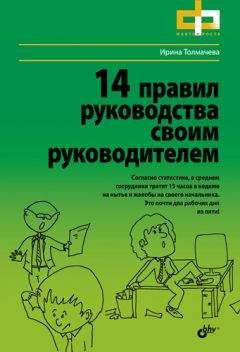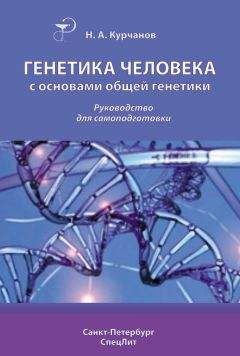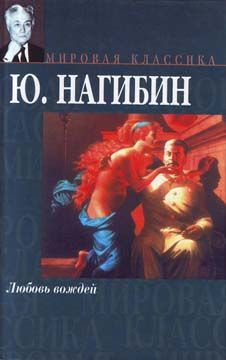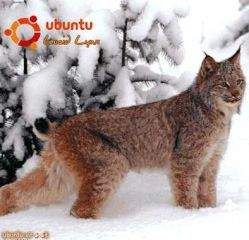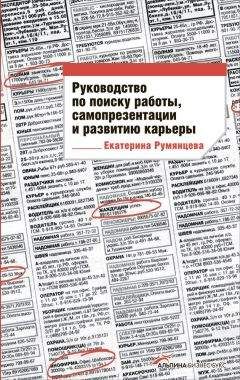Ольга Ламонова - Английский язык. Ирландские волшебные сказки / Irish Fairy Tales
Near the castle, and not far from the washer-woman’s, lived a henwife with two ragged little daughters. One of them came around the washer-woman’s house to play. The child looked so poor and her clothes were so torn and dirty that the princess took pity on her, and cut the clothes with the scissors which she had.
That moment the most beautiful dress of cloth of gold (в тот же момент самое прекрасное платье из золотой парчи: «ткани из золота») ever seen on woman or child in that kingdom (когда-либо виденное на женщине или ребенке в том королевстве; to see /saw, seen/) was on the henwife’s daughter (было на дочери птичницы).
When she saw what she had on (когда она увидела, что было на ней /надето/: «что она имела на /себе/»), the child ran home to her mother (девочка побежала: «ребенок побежал» домой к своей матери; to run /ran, run/) as fast as ever she could go (со всех ног: «так быстро, как только она могла идти»).
That moment the most beautiful dress of cloth of gold ever seen on woman or child in that kingdom was on the henwife’s daughter.
When she saw what she had on, the child ran home to her mother as fast as ever she could go.
“Who gave you that dress (кто дал тебе это платье; to give /gave, given/)?” asked the henwife (спросила птичница).
“A strange woman (одна незнакомая женщина) that is in that house beyond (которая вон в том доме; beyond – вдали, на расстоянии; за, по ту сторону),” said the little girl (сказала маленькая девочка), pointing to the washer-woman’s house (показывая на дом прачки).
“Who gave you that dress?” asked the henwife.
“A strange woman that is in that house beyond,” said the little girl, pointing to the washer-woman’s house.
The henwife went straight to the Queen of Tir na n-Og and said (птичница пошла прямо к королеве Страны Юности и сказала; straight – по прямой линии, прямо; прямо, непосредственно), “There is a strange woman in the place (есть тут одна незнакомая женщина в этом месте = в наших краях), who will be likely to take your husband from you (которая, вполне вероятно, заберет у тебя твоего мужа; likely – вероятный, возможный; to take – брать; отбирать, забирать), unless you banish her away (если только ты не прогонишь ее прочь; unless – если не, пока не; to banish – изгонять, ссылать; прогонять, выгонять, выдворять) or do something to her (или не сделаешь что-нибудь с ней); for she has a pair of scissors (потому что у нее есть ножницы: «пара ножниц») different from anything ever seen or heard of in this country (каких в нашей стране никогда не видали и не слыхали о таких: «отличающиеся от чего-либо когда-либо виденного или слышанного в этой стране»; to see /saw, seen/; to hear /heard/; this – это; этот, эта, это; in this country – в этой или нашей стране /в которой мы находимся/).”
The henwife went straight to the Queen of Tir na n-Og and said, “There is a strange woman in the place, who will be likely to take your husband from you, unless you banish her away or do something to her; for she has a pair of scissors different from anything ever seen or heard of in this country.”
When the queen heard this (когда королева услышала это) she sent word to the princess that (она сообщила принцессе: «отправила сообщение принцессе», что; to send /sent/ – посылать, отправлять; word – слово; вести, известие, сообщение; to send word – сообщать, извещать), unless the scissors were given up to her without delay (если ножницы не будут отданы ей без промедления; to give up – отказаться, бросить /привычку/; сдавать, отдавать; delay – задержка, приостановка; замедление, промедление), she would have the head off her (она прикажет отрубить ей голову: «она будет иметь голову снесенной с нее»; to have smth. done – велеть, приказать сделать что-л. для себя).
The princess said she would give up the scissors (принцесса сказала, что она отдаст ножницы) if the queen would let her (если королева позволит ей; to let – позволять; to let smb. do smth. – разрешить, позволить кому-л. сделать что-л.) pass one night with her husband (провести одну ночь с ее супругом; to pass – идти, проходить; проводить /время, день и т. п./).
When the queen heard this she sent word to the princess that, unless the scissors were given up to her without delay, she would have the head off her.
The princess said she would give up the scissors if the queen would let her pass one night with her husband.
The queen answered (королева ответила) that she was willing to give her the one night (что она согласна дать ей эту одну ночь; willing – готовый, согласный). The princess came and gave up the scissors (принцесса пришла и отдала ножницы), and went to her own husband (и пошла к своему собственному мужу); but the queen had given him a drink (но королева дала ему зелье: «напиток»; drink – питье; напиток), and he fell asleep (и он заснул; to fall /fell, fallen/ – падать; становиться, перейти в определенное состояние; asleep – спящий; to fall asleep – заснуть), and never woke (и так и не проснулся; never – никогда; /эмоц. – усил./ нисколько, никоим образом; to wake /woke, woken/) till after the princess had gone in the morning (до того момента, когда принцесса ушла поутру: «до после того, как принцесса ушла утром»).
The queen answered that she was willing to give her the one night. The princess came and gave up the scissors, and went to her own husband; but the queen had given him a drink, and he fell asleep, and never woke till after the princess had gone in the morning.
Next day another daughter of the henwife (на следующий день другая дочь птичницы) went to the washer-woman’s house to play (пошла к дому прачки поиграть). She was wretched-looking (у нее был такой жалкий вид: «она была несчастно выглядящей»; wretch – несчастный, жалкий человек; wretched – несчастный, жалкий; to look – смотреть; иметь вид, выглядеть, казаться), her head being covered (ее голова была покрыта) with scabs (струпьями) and sores (и болячками).
Next day another daughter of the henwife went to the washer-woman’s house to play. She was wretched-looking, her head being covered with scabs and sores.
The princess drew the comb three times over the child’s head (принцесса провела гребнем трижды по голове ребенка; to draw /drew, drawn/ – тащить, волочить, тянуть; перемещать, передвигать; time – время; раз, случай), cured it (излечила ее), and covered it with beautiful golden hair (и покрыла ее прекрасными золотыми волосами). The little girl ran home (маленькая девочка побежала домой; to run /ran, run/) and told her mother (и рассказала своей матери; to tell /told/) how the strange woman had drawn the comb over her head (как та самая незнакомая женщина провела гребнем по ее голове), cured it (излечила ее = голову), and given her beautiful golden hair (и одарила ее прекрасными золотыми волосами).
The princess drew the comb three times over the child’s head, cured it, and covered it with beautiful golden hair. The little girl ran home and told her mother how the strange woman had drawn the comb over her head, cured it, and given her beautiful golden hair.
The henwife hurried off to the queen and said (птичница поспешила к королеве и сказала), “That strange woman has a comb with wonderful power to cure (у той незнакомой женщины есть гребень с чудесной силой исцелять), and give golden hair (и давать золотые волосы); and she’ll take your husband from you (и она заберет у тебя твоего мужа) unless you banish her or take her life (если только ты не прогонишь или не убьешь ее: «возьмешь ее жизнь»).”
The henwife hurried off to the queen and said, “That strange woman has a comb with wonderful power to cure, and give golden hair; and she’ll take your husband from you unless you banish her or take her life.”
The queen sent word to the princess (королева сообщила принцессе: «отправила сообщение принцессе») that unless she gave up the comb (что если та не отдаст гребень), she would have her life (то она отнимет у нее жизнь: «будет иметь = возьмет ее жизнь»).
The princess returned as answer (принцесса ответила: «вернула в качестве ответа»; to return – возвращаться, идти обратно; отвечать, возражать) that she would give up the comb (что она отдаст гребень) if she might pass one night with the queen’s husband (если она сможет провести одну ночь с мужем королевы; to pass – идти, проходить; проводить /время, день и т. п./).
The queen sent word to the princess that unless she gave up the comb, she would have her life.
The princess returned as answer that she would give up the comb if she might pass one night with the queen’s husband.
The queen was willing (королева согласилась: «была согласная»), and gave her husband a draught as before (и дала своему супругу глоток зелья, как и прежде; draught – глоток; доза жидкого лекарства,). When the princess came (когда принцесса пришла), he was fast asleep (он крепко спал: «был крепко спящим»), and did not waken till after she had gone in the morning (и не проснулся до тех самых пор, когда она ушла поутру).
The queen was willing, and gave her husband a draught as before. When the princess came, he was fast asleep, and did not waken till after she had gone in the morning.
On the third day (на третий день) the washerwoman and the princess went out to walk (прачка и принцесса вышли погулять), and the first daughter of the henwife with them (и первая дочь птичницы /вместе/ с ними). When they were outside the town (когда они были за городом: «вне города»), the princess put the whistle to her mouth and blew (принцесса приложила свисток ко рту и дунула; whistle – свист; свисток; to blow – дуть, веять /о ветре/; дуть /в свисток/). That moment the birds of the air flew to her (в тот самый момент птицы небесные слетелись к ней; air – воздух, атмосфера; воздушное пространство, небо; to fly /flew, flown/ – летать, лететь) from every direction in flocks (стайками со всех сторон: «с каждого направления в стаях»). Among them was a bird of song and new tales (среди них была и певчая птица, которая рассказывала новые истории: «птица пения и новых сказаний»; song – песня; пение; tale – рассказ, история).
